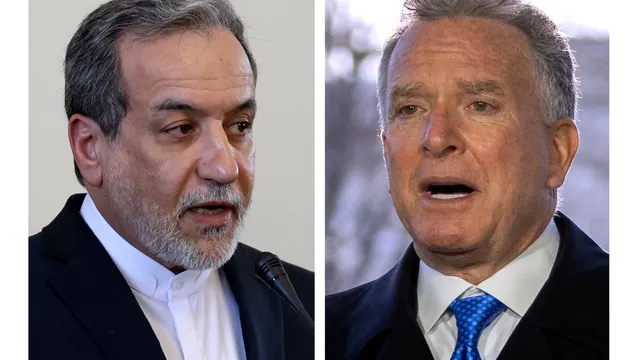
Nuclear talks between Iran and US shift to Rome
2025-04-14 18:09- Negotiations between Iran and the United States will take place in Rome, marking a shift from previous discussions in Oman.
- Iran's Foreign Minister is preparing to discuss negotiations with Russia, highlighting the international dimensions of the nuclear talks.
- The upcoming talks aim to address critical issues around Iran's nuclear program, with key implications for regional security.
Express your sentiment!
Insights
On April 14, 2025, negotiations between Iran and the United States regarding Iran's advancing nuclear program are set to take place in Rome. This follows a series of discussions that have previously occurred in Oman. An anonymous Italian government source confirmed the location of the talks for Saturday. Meanwhile, Iran's Foreign Minister Abbas Araghchi announced a visit to Moscow for discussions on the ongoing negotiations with the U.S., signaling the significance of international diplomacy surrounding this issue. These talks come amid rising tensions as Iranian officials have indicated a potential pursuit of nuclear weapons capability, substantiated by their stockpiles of uranium enriched to near weapons-grade levels. The head of the United Nations nuclear watchdog is also scheduled to visit Iran to ensure improved access for nuclear inspections. This visit is viewed as crucial for fostering cooperation on nuclear compliance amid strained relations following the U.S. withdrawal from the 2015 nuclear deal. The backdrop of these discussions includes the collapse of the 2015 nuclear deal after former President Donald Trump reinstated sanctions against Iran, which had previously led to economic relief for the country. The resumption of talks highlights the intricate balance of power dynamics in the region, where both nations are exploring possibilities for sanctions relief in exchange for commitments on Iran’s nuclear activities. Ultimately, this upcoming round of talks in Rome marks a significant diplomatic effort aimed at rekindling negotiations over Iran's nuclear program, with international observers keenly watching for outcomes that could influence the geopolitical landscape in the Middle East and beyond.
Contexts
The 2015 Iran nuclear deal, formally known as the Joint Comprehensive Plan of Action (JCPOA), was a landmark agreement reached between Iran and six world powers—namely the United States, the United Kingdom, France, Germany, Russia, and China. The negotiations began in earnest in 2013, aiming to limit Iran's nuclear capabilities in exchange for the lifting of economic sanctions that had severely impacted the country's economy. The deal's primary objective was to ensure that Iran's nuclear program remained peaceful and to prevent the potential development of nuclear weapons. Key provisions included reducing Iran's uranium enrichment capacity, limiting its stockpile of enriched uranium, and imposing stringent monitoring by the International Atomic Energy Agency (IAEA). In return, the participating countries pledged to remove sanctions that had been imposed on Iran since 2006. The final agreement was reached on July 14, 2015, after years of diplomatic efforts and negotiations. The deal represented a significant shift in Iran's foreign relations and was hailed by some as a major diplomatic achievement. Supporters of the JCPOA argued that it was the best way to prevent Iran from obtaining nuclear weapons while avoiding military conflict. Following the agreement, the IAEA confirmed that Iran had complied with the initial terms, and sanctions were gradually lifted, allowing Iran to regain access to international markets and economic relief. However, the deal faced considerable criticism, particularly from Israel and various U.S. lawmakers who contended that it failed to address Iran's ballistic missile program and its regional activities, which they viewed as destabilizing. The situation escalated further when, in May 2018, U.S. President Donald Trump announced the unilateral withdrawal of the United States from the JCPOA, citing concerns over Iran's compliance and broader security issues. Following the U.S. exit, many sanctions were restored, leading Iran to gradually exceed its nuclear commitments outlined in the original agreement. This turn of events heightened tensions in the region and raised concerns about a potential nuclear arms race in the Middle East. In the years that followed, diplomatic efforts to resurrect the JCPOA were sporadic, especially with the changing administrations in the U.S. and ongoing regional tensions. In April 2021, negotiations resumed in Vienna with the hope of reinstating the deal, although the process was complicated by various geopolitical factors, including Iran's ballistic missile tests and its involvement in proxy conflicts across the region. By early 2025, while talks continued, both sides remained firm on their positions regarding compliance and the terms of any potential new agreement. The future of the JCPOA remains uncertain, with significant implications for global nonproliferation efforts and stability in the Middle East.